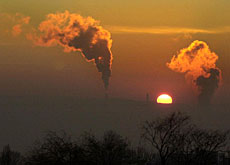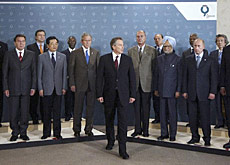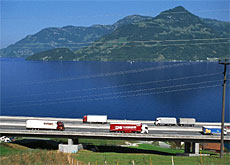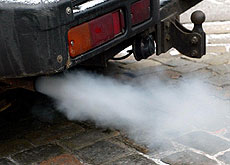Swiss warm to new climate treaty

Switzerland says the new six-nation Asia-Pacific partnership to combat global warming will "complement" the Kyoto protocol.
But environmentalists say the pact lacks firm obligations to cut pollution and warn that it might undermine the 140-nation Kyoto accord.
The world’s top two air polluters – the United States and China – joined Australia, India, Japan and South Korea on Thursday to unveil the initiative.
“I am optimistic,” Philippe Roch, head of the Swiss environment agency, told swissinfo. “It is the first time that the big partner, the US, has recognised that there is a climate-change problem and that they have to set some targets to reduce their emissions.”
The US and Australia are the only industrialised nations outside Kyoto, which demands cuts in greenhouse gases to 5.2 per cent below 1990 levels by 2012.
They say Kyoto is flawed because it omits developing states and would also lead to higher energy prices.
China and India have ratified Kyoto, but since they are developing countries they are not required to meet its obligations.
Roch sees the move as progress because until now the US, Australia, China and India have had no targets.
He says “the only shadow” is that it is a part-agreement and “Switzerland wants a multilateral global agreement where all the countries are part”.
Complement
The Asia-Pacific Partnership on Clean Development and Climate aims to create cleaner technologies for energy-hungry economies such as China and India, meeting long-term energy needs while reducing pollution and addressing climate concerns.
“We view this as a complement, not an alternative” to the Kyoto treaty, US deputy secretary of state Robert Zoellick said at a joint news conference by the six countries in the Laotian capital Vientiane.
“We are not detracting from Kyoto in any way at all,” he said. “Our goal is to complement other treaties with practical solutions to problems.”
Roch agrees. “I consider it to be a complement to Kyoto and perhaps a good preparation for the time after Kyoto. We need further commitments and if the US, China and India agree to look forward, it gives some hope for the next step.”
“I don’t think it undermines Kyoto because Kyoto has come into force – it is in place and no one can challenge it,” he added.
Opposition
But Roch’s optimism regarding the new agreement was not shared by everyone.
“Rather than saving the climate, the pact is nothing more than a trade agreement in energy technologies between the countries in question,” Greenpeace Switzerland told swissinfo.
“This pact looks like yet another attempt by the US and Australia to derail the Kyoto negotiations and condemn future generations to a world ravaged by climate change.”
The global conservation organisation WWF, based near Geneva, was also dismissive of the deal: “A treaty on climate change that doesn’t set pollution limits is like a peace accord that authorises gunshots.”
Zoellick defended the non-binding clause, saying “one can’t just command other parties to do things. You need to try to develop interests and incentives”.
swissinfo, Thomas Stephens
Carbon-dioxide emissions:
US : 5,410 million metric tons (20.1 tons per capita).
China : 2,893 million (2.3 tons).
EU : 3,171 million (8.5 tons).
Switzerland: 40 million tons (5.4 tons).
The United States, China, Australia, India, Japan and South Korea unveiled on Thursday an initiative that they described as a complement to the 1997 Kyoto accord.
The Asia-Pacific Partnership on Clean Development and Climate aims to reduce pollution by creating cleaner technologies for energy-hungry economies.
Environmentalists are sceptical as the pact contains no legally binding requirements or timeframes to cut emissions.

In compliance with the JTI standards
More: SWI swissinfo.ch certified by the Journalism Trust Initiative




You can find an overview of ongoing debates with our journalists here. Please join us!
If you want to start a conversation about a topic raised in this article or want to report factual errors, email us at english@swissinfo.ch.